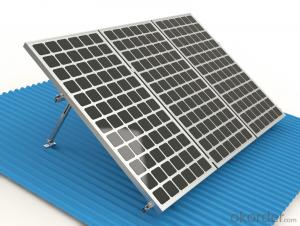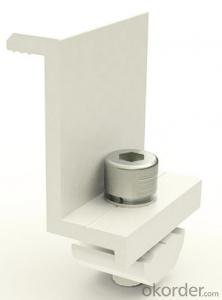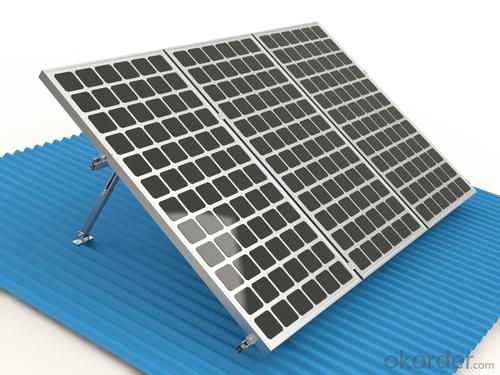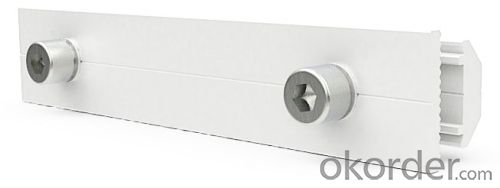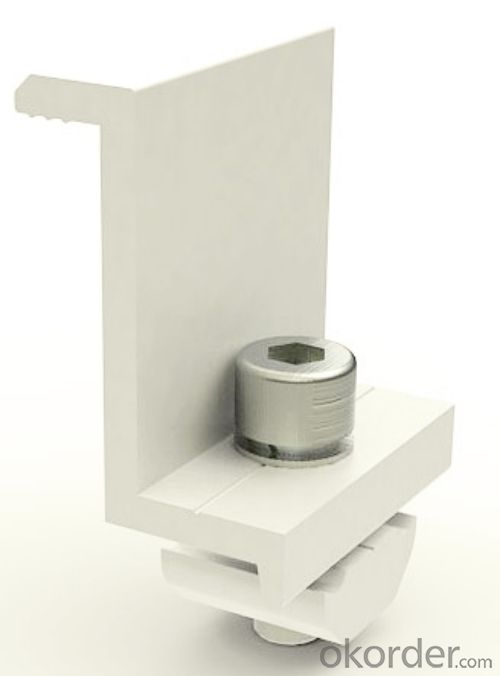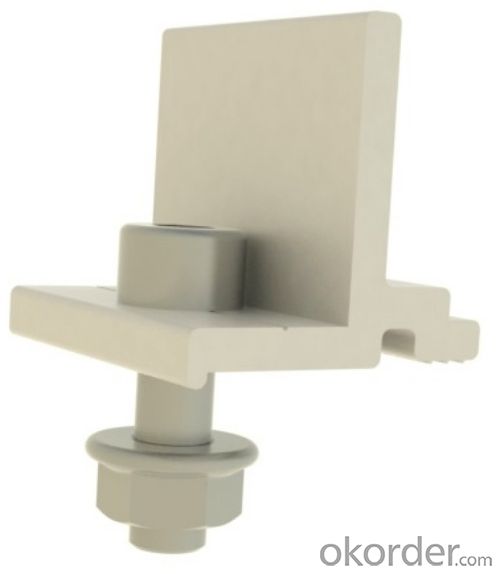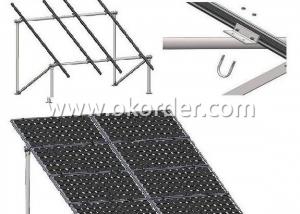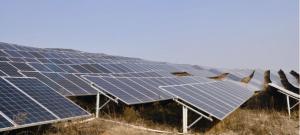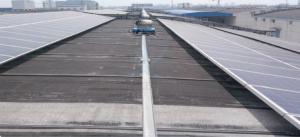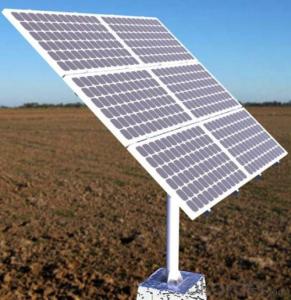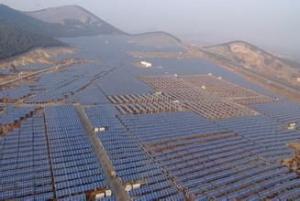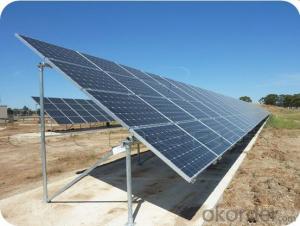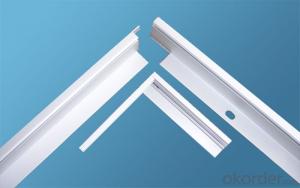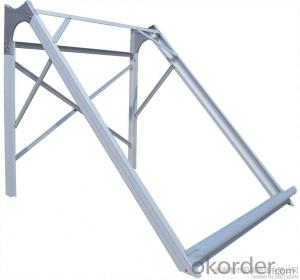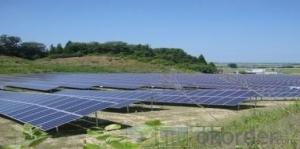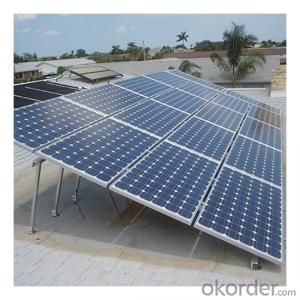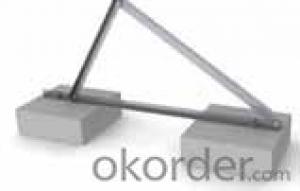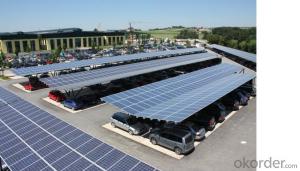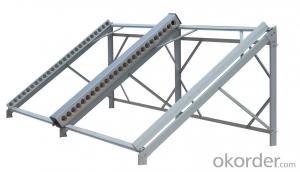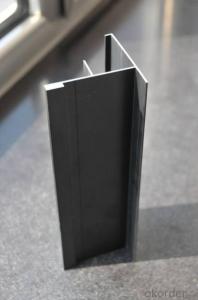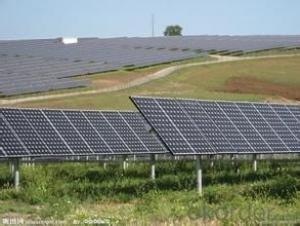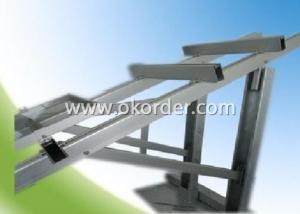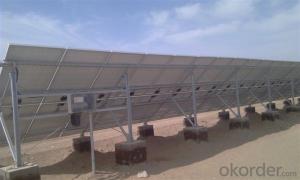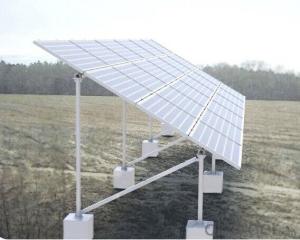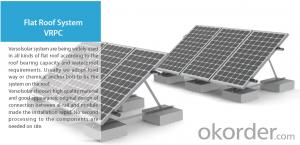Adjustable Flat Rooftop Solar Mounting System from India Supplier
OKorder Service Pledge
OKorder Financial Service
You Might Also Like
Adjustable Flat Rooftop Solar Mount
Flat Roof Racking system is developed to mount the module tilt a certain angle on a flat roof or ground. You can have
the fixed or adjustable angle solution as 10-15deg, 15-30deg and 30-60deg according to your exact requirement. GS series
product have the innovated aluminum rail, D-module, clamps and legs which can be pre-assembled to make the installation
easy and quick for saving your labor cost and time. Besides, the customized length of rail will not require onsite weld and
cut, keeping the appearance entirety, structural strength and anti-corrosive performance.
Specifications
Solar Roof Mounting System :
1) ISO 9001,AS/NZS 1170&TUV certified
2) Fit all kinds of panels
3) Easy installation
Solar Roof Mounting System :
Material | Aluminum AL6005-T5 & SUS 304 |
Standard | AS/NZS 1170, TUV |
Install Site | Flat Roof |
Install Angle | 0-60 degree |
Max Building Height | 20 m |
Wind load | 130mph(60m/s) |
Snow Load | 30psf(1.4kN/m2) |
Anticorrosive | Anodized or hot galvanized |
Color | Natural or Customized |
Warranty | 10 years |
Duration | More than 20 years |
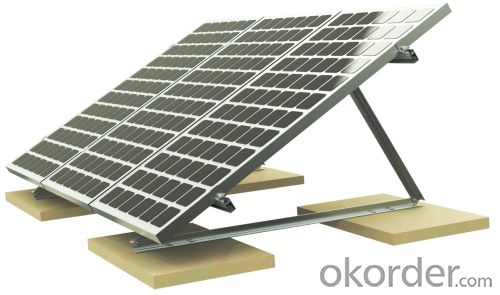
Fixed System
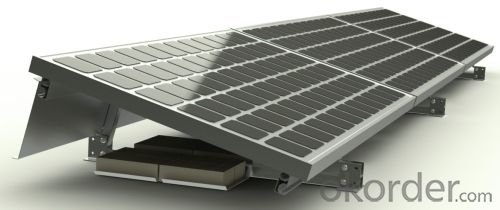
- Q: Can solar mounting systems be installed on asphalt or concrete surfaces?
- Yes, solar mounting systems can be installed on both asphalt and concrete surfaces. The specific type of mounting system will depend on the surface and its condition, but there are options available for various types of roofs and grounds.
- Q: Specification for installation of fire pipe support
- The diameter of the hole on the bracket is 1 ~ 2mm larger than the diameter of the bolt. The burr on the bracket should be polished in time, and the end of the bracket should be chamfered
- Q: Can a solar mounting system be installed on a rooftop with a vented roof?
- Yes, a solar mounting system can be installed on a rooftop with a vented roof. The mounting system can be designed to accommodate the vents and ensure proper ventilation while also securing the solar panels in place.
- Q: Can solar mounting systems be installed on sloped terrain?
- Yes, solar mounting systems can be installed on sloped terrain. There are specially designed mounting systems that can accommodate different types of slopes and angles, allowing for efficient installation and optimal solar panel orientation. These systems ensure the stability and longevity of the solar array even on sloped terrains.
- Q: Can a solar mounting system be installed on a rooftop with a metal tile roof?
- Yes, a solar mounting system can be installed on a rooftop with a metal tile roof. Metal tile roofs are suitable for solar panel installations as they provide a stable and durable surface for mounting the solar panels. However, it is important to ensure that the mounting system is specifically designed for metal tile roofs to ensure proper installation and prevent any damage to the roof.
- Q: Are there any specific requirements for installing a solar mounting system on a rooftop with rooftop HVAC ducts?
- Yes, there are specific requirements for installing a solar mounting system on a rooftop with rooftop HVAC ducts. It is important to ensure that the solar panels do not obstruct or interfere with the HVAC ducts, as this can affect the performance and efficiency of the HVAC system. Additionally, proper clearance and spacing must be maintained between the solar panels and the ducts to allow for proper airflow and ventilation. It is recommended to consult with a professional solar installer who can assess the specific situation and provide guidance on the best installation approach to accommodate the rooftop HVAC ducts.
- Q: What is the expected reduction in greenhouse gas emissions with a solar mounting system?
- The expected reduction in greenhouse gas emissions with a solar mounting system largely depends on the size of the system and the energy consumption it offsets. On average, a solar mounting system can reduce greenhouse gas emissions by around 1.6 metric tons of CO2 per year for every kilowatt of installed capacity. However, this figure can vary depending on factors such as the location's solar resource, energy demand, and the energy mix it displaces.
- Q: How does a solar mounting system affect the roof's fire resistance?
- A solar mounting system does not directly affect the fire resistance of a roof. The primary purpose of a solar mounting system is to securely hold the solar panels in place and optimize their position for maximum sunlight exposure. However, it is crucial to ensure that the installation of the mounting system does not compromise the fire resistance of the roof. Proper installation techniques, such as using fire-resistant materials and maintaining proper clearances, are essential to maintain the fire resistance of the roof.
- Q: Can a solar mounting system be used in areas with limited access to grid interconnection options?
- Yes, a solar mounting system can be used in areas with limited access to grid interconnection options. This is because solar panels can operate independently, generating electricity from sunlight even without being connected to the grid. In such areas, the solar mounting system can be designed with energy storage solutions, such as batteries, to store excess energy generated during the day for use during the night or when there is low sunlight. This allows for a reliable and sustainable source of electricity, even without grid interconnection options.
- Q: What are the characteristics of the hydraulic support hydraulic system?
- Of the reverse, that must ensure that the hydraulic system of self-protection, that is, in the hydraulic system to take certain security measures, such as hydraulic cylinders can take the way of hydraulic lock or some occasions can be used to reduce the incidence of accident valve ;
Send your message to us
Adjustable Flat Rooftop Solar Mounting System from India Supplier
OKorder Service Pledge
OKorder Financial Service
Similar products
Hot products
Hot Searches
Related keywords
